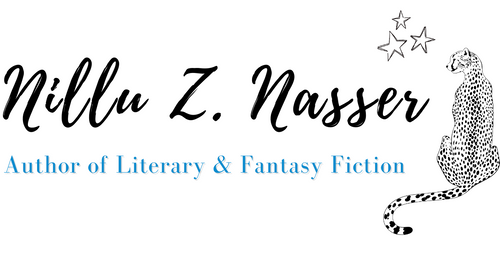
Photo by Brenda Clarke
I’ve been working recently on a novel that has grown from a short story I wrote last year. It’s a literary romance based in Mumbai about a drifter called Akash. He continued to fill my head after I wrote the last line of the short story and I realised his story was unfinished. It has become a novel about second chances that unravels amongst the dust and grime of the Mumbai’s streets and behind the gates of opulent houses.
Not for the first time during this novel, I have found it easy to be swallowed up in research. Although my heritage is Indian, I was born in the UK. I have visited India twice, once as a child and once in my early twenties. My recollections are broad brush strokes: the smell of street food, the sticky heat, the palaces in Jaipur, the imploring faces of child beggars pressed against cool taxi windows.
For the details for my novel, I turned to travel guides and photo books. Cousins of mine, who live in Mumbai have provided eye witness accounts. I’ve been watching Bollywood movies to get in the mood. The internet has saved me lots of time researching, or so I first thought, compared to the hours spent in dark libraries by previous generations. This, of course, it rubbish. Instead, it opens up as if it is a wormhole, an unfiltered surplus of information, causing hours to disappear with the click of my trackpad.

Photo by Daniel Lobo
How easy it is to get sidetracked. Yesterday, I needed to know the dates Indira Gandhi was Prime Minister, and within moments I was drawn into the tragic glamour of the Gandhi family, history I once knew, but which had all but escaped through the sieve of my memory: Indira’s rise to power, the loss of her politically-minded younger son in a plane crash, convincing her elder son to run for parliament and setting him on the path to his assassination ten years later, her own murder, and how the wives of her dead sons are on opposing sides of the political spectrum in today’s India.
Later, I checked the meaning of a main character’s name: Soraya, taken from the Persian to mean ‘princess’. I found myself reading about Soraya, the Colombian-American singer songwriter, who died in 2006 at 37 years old from breast cancer. And Soraya, Princess of Iran, who married the King, the last Shah of Iran, at eighteen years old, and found she could not conceive. She refused to share her husband with another woman (the King could have had two wives), and they parted after seven years of marriage, both unwillingly, because he needed an heir. The King went on to remarry and have children. Princess Soraya moved to France after their parting and briefly became an actress. She met a new partner but succumbed to depression after he died. She was found dead in her Paris apartment in 2001 at the age of sixty-nine. Her younger brother commented at the time “after her, I don’t have anyone to talk to.” He died a week later.

Photo by Joel Bedford
Princess Soraya’s story reminded me that there are stories all around us, but she is not the Soraya of my novel, and I began thinking about how best to conduct research for fiction without getting distracted or doing too much. With so many avenues at our disposal to gather what we need to write credible stories – books, letters, internet, in person interviews, phone calls, movies, documentaries, museums, online forums, YouTube – how much research is the right amount?
Here are my tips:
Choose projects wisely. While you don’t always need to write what you know, if you are starting from scratch researching an intricate issue, know you’re on the back foot. Readers, agents, publishers are waiting for your next book. Don’t let a world’s worth of research be the reason you are keeping them waiting or your pockets empty
Carry out background research to get you in the frame of mind for your characters, themes and settings is a good idea. Start with a small set of essential questions to keep you focused
Make a note of finer details to weave into your writing. Peppering your fiction with the odd detail will give your writing authenticity
Avoid hoovering up research and dumping it onto the page at all costs. You are writing fiction, not a history textbook
Don’t get sucked into the wormhole. If your words are flowing, mark missing information with an X and return to it later
Search for beta-readers within your subject realm to pick up on inconsistencies and breaks with reality
Save in person jaunts to research your novel for times when your creative juices are running low. A timely visit to a museum or setting can get you out of a rut
Sound the alarm bells when you notice you’re overindulging in research as an excuse to procrastinate
Employ the Iceberg Theory à la Ernest Hemingway, also known as the theory of omission. In other words, do your research, but prune your story so that you tell only what is essential. Trust the reader to understand what is implicit in your story
Develop a BS detector. This advice also comes from Hemingway, so it must be good. Get a feel for your topic, your characters, and assess your words for their measure of truth. Trust your gut
Learning is admirable but there comes a time when you just need to sit your delicious bottom down and write
You’re a fiction writer. Don’t forget it is your magic power to fake what you don’t know
How do you approach researching your fiction? Do you immerse yourself in the background to your story, or are you a fly by the pants type? Let me know in the comments. I love hearing from you. Happy writing, folks.
